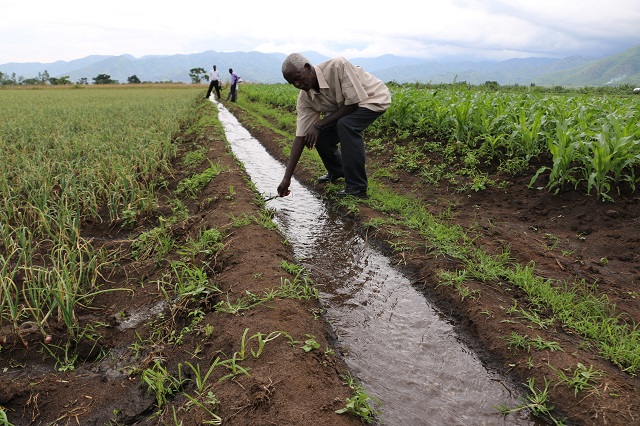
Rome, Italy | Xinhua | The world’s stressed water supply needs to be sustainably managed, organizers from Tuesday’s Rome Water Dialogue said, as needs for consumption and agricultural use are set to increase dramatically in the coming decades.
Hosted by the Rome-based United Nations Food and Agriculture Organization (FAO) in preparation for the UN 2023 Water Conference, Tuesday’s dialogue was aimed at raising awareness of the role water holds for the world and casting light on the deep links between the water sector and agriculture — the economic sector that uses the most water.
The conference next year will be the first on water the United Nations held since 1977.
According to FAO Director-General Qu Dongyu, the world is in the midst of a dramatic increase in the amount of fresh water it needs.
“By 2050, global production of food, fiber and feed will need to increase by 50 percent compared to 2012 levels to meet growing demands,” Qu said in a statement. “Under a business-as-usual scenario, this would mean at least 35 percent of additional freshwater resources.”
Li Lifeng, director of FAO’s Land and Water Division, told Xinhua that next year’s water summit was of “great importance” given global water challenges, which means that the dialogue held Tuesday in Rome took on extra value because it will help set the stage for the summit.
“We have seen this year from the flooding in South Africa, Madagascar, and Australia or the droughts in Europe and Asia what a key role water management plays,” said Li. “Some areas get too much water and some get too little.”
🔵Rome Water Dialogue highlights the urgency of sustainably managing the earth’s water resources.
Under a business-as-usual scenario, we'll need 35% more freshwater to produce the extra food required for the planet’s growing population by 2050 – @FAODG
👉https://t.co/EROqEMl4n0 pic.twitter.com/9PdJmztuoY
— FAO Newsroom (@FAOnews) November 29, 2022
FAO’s data shows that currently 2.3 billion people globally live in water-stressed countries, and more than 733 million people — around a tenth of the world’s population — live in countries suffering from critical water stress. Climate change is predicted to have an increasing impact on weather patterns.
Agriculture consumes an estimated 72 percent of the world’s fresh water, according to FAO, making it a critical component in any strategy to confront water-related stress.
In a press release, FAO called for a “strong, coherent and explicit integration and prioritization of water into national sustainable development strategies, policies and investment plans,” so as to “understand how water resources can be used across sectors to achieve countries’ social, economic and environmental objectives.”
“One thing we saw (at Tuesday’s conference) is that there is a clear and high-level recognition of the deep connection between water and agriculture,” Li said. “We need to focus on the big picture to understand better how to improve the situation.” ■
 The Independent Uganda: You get the Truth we Pay the Price
The Independent Uganda: You get the Truth we Pay the Price


